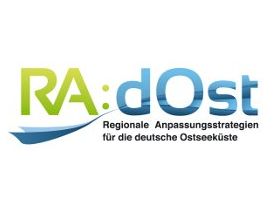The Lisbon Conference 2010 "A Unified Approach for Sustainability in a Changing World: From Ocean Policy to Observation" linked activities to support integrated governance for effective implementation of coastal management and ocean policies. Supported by the Coastal Services Center of the US National Oceanic and Atmospheric Administration (NOAA) and hosted by the Luso-American Foundation, the conference focused on core indicators for coastal adaptation and ecosystems of the North Atlantic. The Marine Policy and RADOST project teams of Ecologic Institute provided content and facilitation.
Background to the Lisbon Conference 2010
Population growth, global warming, sea level rise, and natural hazards are driving changes in coastal and marine ecosystems that jeopardize the safety, health, security and economic wellbeing of over 40% of the human population. Since the 1960s, concerns over these changes have led to a large and growing body of international agreements aimed at restoring, protecting and sustaining healthy coastal and marine ecosystems. A common theme of the coastal management and ocean policies articulated in these agreements is the need for adaptive, ecosystem-based approaches to sustainable development that will maintain the capacity of ecosystems to support goods and services valued by society (energy, food, water, shipping, resilience to natural hazards, regulation of green house gasses and temperature, biodiversity, pharmaceutical drugs, recreation, etc.).
Implementation requires close linkages among ecosystem-based approaches in research and management, regular assessments of the health of coastal and marine ecosystems, the provision of quantitative environmental, social and economic indicators that inform regular assessments, and sustained observations and modeling of coastal and marine ecosystems and social and economic trends. Today, these activities are not well coordinated on the regional to global scales of the drivers of change and their impacts on ecosystem goods and services; the flow of data and information among them are inefficient and incomplete, especially in the socio-economic dimension; and broad, international agreement on data and information requirements for ecosystem-based approaches is lacking. These realities severely limit implementation of coastal management and ocean policies and sustained assessments of their effectiveness and call for an integrated approach to ocean governance on regional to global scales.
Context for the CALAMAR and RADOST projects
The themes of the Lisbon Conference 2010 are further developed by Ecologic Institute through the projects CALAMAR and RADOST.
As the impacts of climate change and global demand for marine resources have increased, the development of an integrated, holistic marine governance framework has become a key goal for the EU and US. Recent policy events on both sides of the Atlantic provide a window of opportunity to significantly improve marine governance in national and international waters. In line with the pursuit of this goal, the Ecologic Institute leads the CALAMAR project with a transatlantic consortium that convenes multi-stakeholder dialogues allowing experts from the EU, US and other regions to develop best practices for integrated marine management.
Ecologic Institute coordinates the five-year project RADOST (Regional Adaptation Strategies for the German Baltic Sea Coast). The Baltic coastline of Mecklenburg-Western Pomerania and Schleswig-Holstein is one of seven model regions in Germany that are supported by the Federal Ministry of Education and Research (BMBF) through the funding activity KLIMZUG ("Managing climate change in the regions for the future"). The aim of the RADOST project is to develop regional adaptation strategies in a dialogue between research institutions, business, public administration and civil society. Implementation projects with local coastal stakeholders aim to demonstrate good adaptation practices and to trigger their transferability in the region and beyond. In association with the RADOST project a further project stemming from the funding initiative of the International Bureau of the BMBF "Circum Mare Balticum" will support the exchange of regional availability of climate knowledge in the Baltic sea region. The RADOST partner regions in the United States, which exhibit similar conditions and challenges to the German Baltic Sea coast, are the Chesapeake Bay in Virginia and Maryland, and the Albermarle-Pamlico Sound and Outer Banks in North Carolina. The RADOST partner in the US is the Duke University Marine Laboratory.





